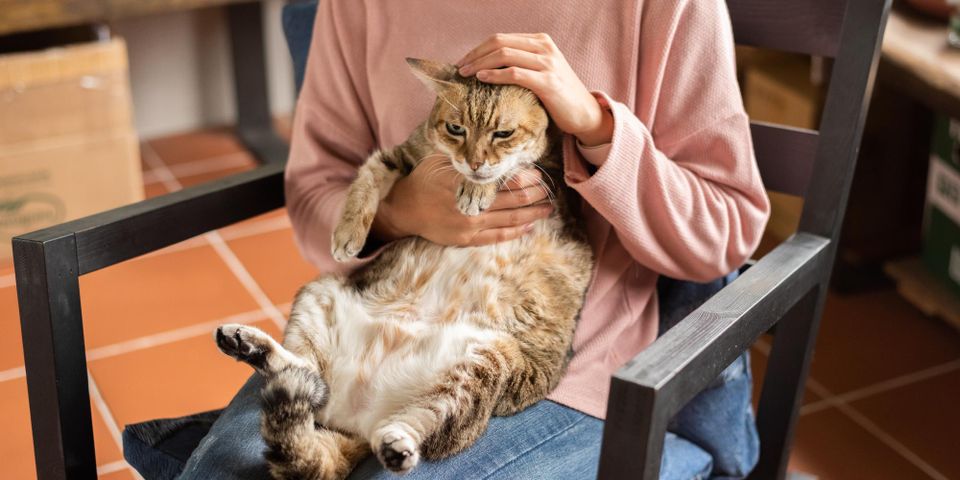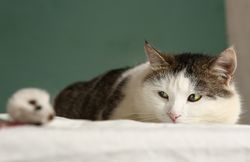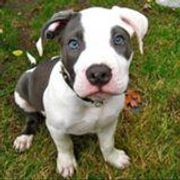
Feline obesity is one of the most common problems encountered by veterinarians and can lead to serious health complications as your cat ages. Luckily, if you’re well-informed and proactive, it’s possible to improve your companion’s quality of life. Here’s a closer look at this condition to help you protect your cat’s health.
Defining Feline Obesity
Feline obesity is widespread in the United States, affecting nearly 60% of all cats. Obesity occurs when a cat consumes more calories than they can burn, resulting in a buildup of excess fat.
This is usually defined according to body weight, with cats considered overweight when they carry 10-20% more than their optimal number of pounds. Obesity is anything heavier than 20% above their ideal weight.
Causes of Feline Obesity
 The most common cause of obesity in cats is an improper diet. Cats are obligate carnivores, meaning they must eat meat and protein to remain healthy. However, many commercially available cat foods, especially dry varieties, include carbohydrate-rich, corn-based ingredients. Cats will occasionally eat grass to aid digestion, but their stomachs can’t break down fatty plant matter and carbohydrates, resulting in excess fat.
The most common cause of obesity in cats is an improper diet. Cats are obligate carnivores, meaning they must eat meat and protein to remain healthy. However, many commercially available cat foods, especially dry varieties, include carbohydrate-rich, corn-based ingredients. Cats will occasionally eat grass to aid digestion, but their stomachs can’t break down fatty plant matter and carbohydrates, resulting in excess fat.
Also at risk are cats who don’t get enough exercise. Cats with access to safe outdoor spaces will have plenty of opportunities to climb, stretch, and play, helping to keep weight off and burn excess energy. Strictly indoor cats can also benefit from interactive toys and designated playtime.
Risks of Obesity in Cats
Just as in humans, research shows that obesity can significantly shorten a cat’s life span while increasing the risks of disease and other chronic conditions. Whereas fat was previously seen as inactive body mass, numerous studies have revealed that it’s active and harmful. According to research, fat secretes hormones that add stress to a cat’s organs and increase the risk of diseases, such as:
- Multiple types of cancer
- Diabetes mellitus
- Heart disease
- Hypertension
- Osteoarthritis and painful joints
- Bladder stones
Prevention & Solutions
Your cat can achieve their ideal weight through exercise and a diet plan created with help from your veterinarian. Diets will have to be adjusted based on nutritional content, portion sizes, and feeding frequency.
Appropriate foods will have a lower overall calorie content while delivering a large volume of essential proteins, vitamins, and other nutrients. Don’t simply reduce the amount of food they eat, as this can cause malnutrition over time.
If you’re concerned about your cat’s weight and need the help of a compassionate veterinarian to design a comprehensive diet plan, turn to Westside Veterinary Hospital in Statesboro, GA. For 25 years, these friendly experts have provided exceptional personal care and attention to every pet in their care. To schedule an appointment, call (912) 489-1998 or visit them online to learn more about their services.
About the Business
Have a question? Ask the experts!
Send your question

